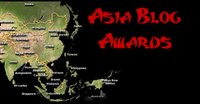
Benazir Bhutto is known for her survivalist instincts and pursuit of self-interest. As your Blogger has been suggesting in recent months, the PPP leader has been surreptitiously engaged in negotiations with Musharraf’s envoys to save her skin from the Swiss Courts, who have found her and Asif Zardari guilty of money laundering.
Having appealed the verdict of the Swiss lower court, she now finds herself facing an additional charge of aggravated money laundering, which carries a maximum sentence of five years in jail as well as a fine of about one million Swiss francs if found guilty. (See Blog: Dancing Peacocks & the Quaking Lady)
The killing of Akbar Bugti provided a unique opportunity to take down Musharraf’s democratic façade by a mass resignation of opposition members in the assemblies. Benazir’s decision not to confront the regime when it was momentarily at its weakest, clanged bells loudly for her newfound policy of appeasement.
For this ‘good’ behaviour she has now been apparently rewarded - the Swiss Court had suddenly adjourned its 26th September hearing at the request of the government of Pakistan. So far, quite interestingly, no new date has been set for a future hearing.
But that is not the end of her problems. Yesterday a UK High Court dismissed Asif Zardari’s application to set aside the Pakistan government’s action against him which accuses Zardari of having purchased Rockwood Estate in Surrey with money obtained by corruption.
The UK judge held, in his 49 page judgment, that “Zardari had concealed his ownership of Rockwood Surrey Palace and now it is time for him to show that the Surrey Palace was not purchased with corruption money” adding that there was a reasonable chance that the Pakistan government would be able to prove its case that the Rockwood Mansion was purchased by Asif Zardari and Benazir Bhutto using money obtained from corruption.
It goes without saying that the noose is fairly tight around her throat these days.
Now if Benazir Bhutto concedes to Musharraf on the vital issue of the uniform – which she is likely to do – then she will be jettisoning the much- hyped ‘Charter of Democracy’ to the toilet bowl of political history. By disavowing on her publicly stated commitment she runs the risk of being exposed as a politician devoid of any shred of principle or integrity.
But then what else is new?
_______________________________________________________
And now onto Musharraf.
After seven years of verbal abusing Benazir Bhutto at every turn, he will have to swallow his words.
It is an obvious sign of his political weakness.
Musharraf, like Benazir Bhutto and Nawaz Sharif before him, seems now to be purely motivated by the desire of clinging to power. Gone are his heady days of ‘Pakistan First’. Like all military dictators he has come to enjoy the trappings of power, so now it is all about ‘Musharraf First’.
While there has been criticism from the US and its allies for Musharraf's rejection of democratic practices and the marginalization of the mainstream forces in Pakistan, the military strongman has also reached the end of the track with his dependence on the religious right, which has helped prop his regime in power these past few years. The failure of the Hudood Amendment bill has widely exposed Musharraf’s political inability to ‘walk the walk’.
Another obvious reality that may finally dawned on the General is that he is no longer popular. Reality states that the 2007 general elections can be won by him only through massive and blatant pre-rigging (which is already underway (See Blog: The Coming Farce is Already Upon Us... ). But the consequence of winning this election dishonestly presents the great unknown.
As an Op-Ed commentator noted:
Given the Talibanisation of tribal areas, and extension of Taliban’s influence in the adjoining settled districts, continuing military operation and insurgency in the Baloch areas, deepening alienation of Sindhis, sustenance of jihadi and sectarian outfits, overall exclusion and sufferings of the general masses and increasing isolation of and resentment against the military rule, Pakistan presents a volcanic situation that can potentially burst out in many directions and at numerous levels.Rigging of the 2007 elections could possibly set off a mass protest movement that could quickly get out of the control of the democratic forces and pass into the hands of organized extremists, ensuing nationwide mayhem and chaos.
Not only will such an event weaken the General in the eyes of his twin constituencies (the mentor in Washington and his own generals) but as night follows day, any errosion in Musharraf’s political power will also lead the famed turncoats that comprise tha PML (Q) to desert him without a second glance.
But all that is in the possible future. To prevent this from becoming a reality the move to bring PPP back in the political fold will ensure Musharraf’s prolonged stay in power, providing he keeps his uniform.
The unusual but not unexpected headline of the day is from The Daily Times: Coalition Government with PPP possible – Ch. Shujaat Hussain.
Indeed these are deperate times for some desperate people!
Pakistan


















